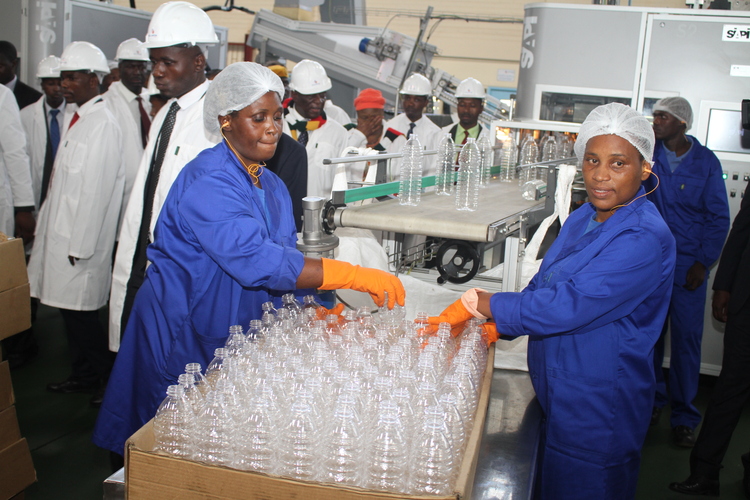
The ManicaPost

Rumbidzayi Zinyuke Business reporter
Besides running one of the biggest edible oil refineries in the country, Willowton Zimbabwe has taken a bold step towards empowering women in Manicaland, as it has adopted a deliberate policy to employ more women.
The company launched its $40 million refinery plant in Mutare’s Nyakamete industrial area, one of the most significant foreign direct investments in the country’s manufacturing sector in recent years.
The plant, which was officially opened by President Emmerson Mnangagwa on Friday last week, currently employs over 140 employees directly, with a number of key positions being held by women, in line with the Government‘s gender policy.
The firm manufactures cooking oil and soap, and there are plans to venture into candles, margarine and rice production.
During the tour of the plant by delegates, Post business witnessed more women than men, working in some of the departments.
Speaking at the official launch of the Refinery plant on Friday last week, Willowton Zimbabwe’s chief executive Mr Bruce Henderson said the company was proud of the work being done by its female employees and was keen to employ more women.
“We are proud of all our employees, particularly the female ones. They prioritise their families and they deliver. And they are less likely to be distracted as much as us males. This is the spirit we want to foster within the company,” he said.
He said the women play key roles in departments such as finance, saponification (soap making) and laboratory services.
Several women who spoke to Post Business expressed their pleasure at being awarded the opportunity to work for Willowton.
“We are working very well here. We came in as women and we were given the opportunity to work in an area where only men used to work. Most of us didn’t have any source of income before but we can now fend for our families. We can afford to take care of them and take our children to school,” said Ms Marita Manyama, an employee at the bottle performs manufacturing plant.
Another employee, Ms Netsai Chihamba said the move by Willowton to empower women had helped some women regain their dignity is society.
“Some of us here are single parents and we had to take care of our children alone. Society looked down on us but Willowton came in and helped us regain our dignity. We have job security to ensure that our children get decent education and food,” she said.
A supervisor in the same department, who preferred not to be named said the move to employ more women was a deliberate policy meant to empower the women within the community the company operates in.
“This is a deliberate initiative to employ women in most of our packaging departments from the soap making, bottle and oil packaging departments. You notice that our machines do most of the manual labour and these women then come in to pack the containers, the soaps and the filled cooking oil bottles,” he said.
Government launched the revised national Gender policy in July 2017, a remarkable and historic event in Zimbabwe’s journey towards a gender-just society.
The policy dovetails with the implementation of Agenda 2030 on Sustainable Development Goals that recognises gender equality as a fundamental right and a driver of progress across all the development goals. The Policy is also in line with the African Union Agenda 2063, which aims to achieve “full gender equality in all spheres of life” through removing “all forms of gender discrimination in the social, cultural, economic, and political spheres.”
It facilitates the domestication of the revised SADC Gender and Development Protocol which Zimbabwe has recently signed.
The promotion of gender equality and the empowerment of women is central to the mandate of all UN Agencies and, under the coordination of UN Women, this work is intrinsic to our development approach.
According to a 2016 UNDP Africa Human Development Report, sub-Saharan Africa loses around $95 billion per year ( or roughly five percent of the combined GDP ) due to gender inequality, which greatly impedes the continent’s efforts for economic growth.
At the global level, experts say that levelling the playing field for women at work also positively impacts the growth and development of countries.



